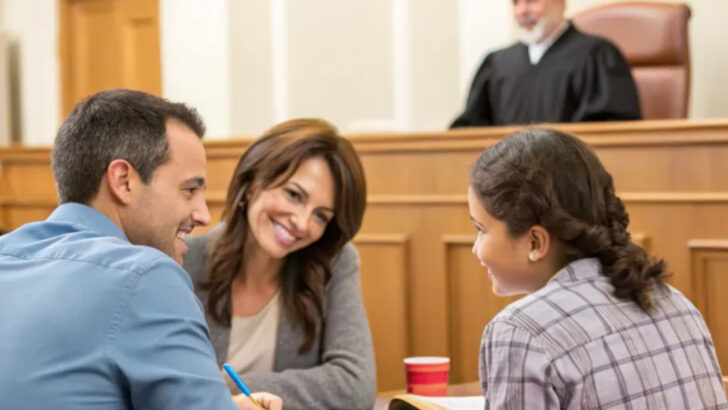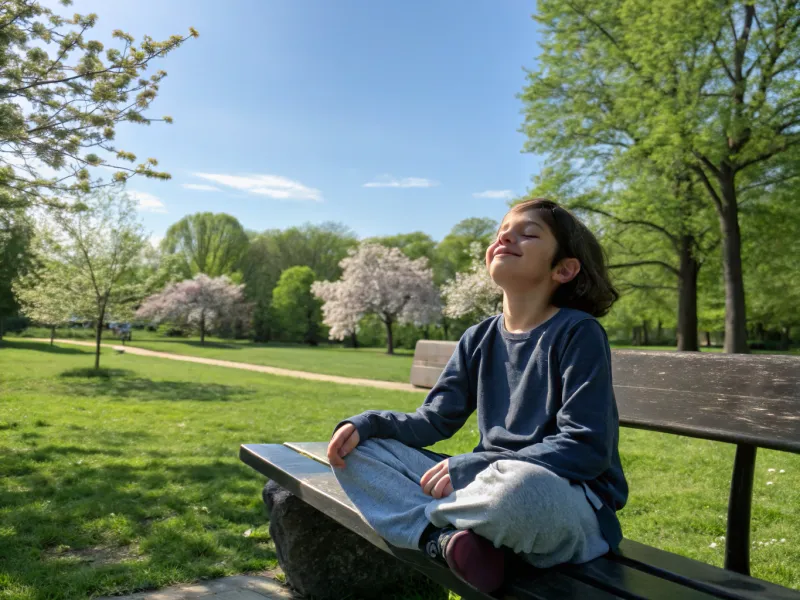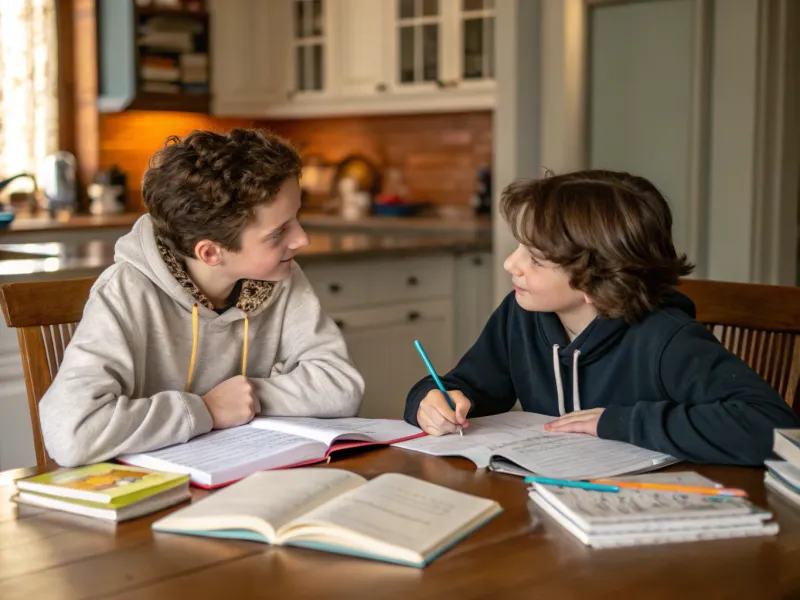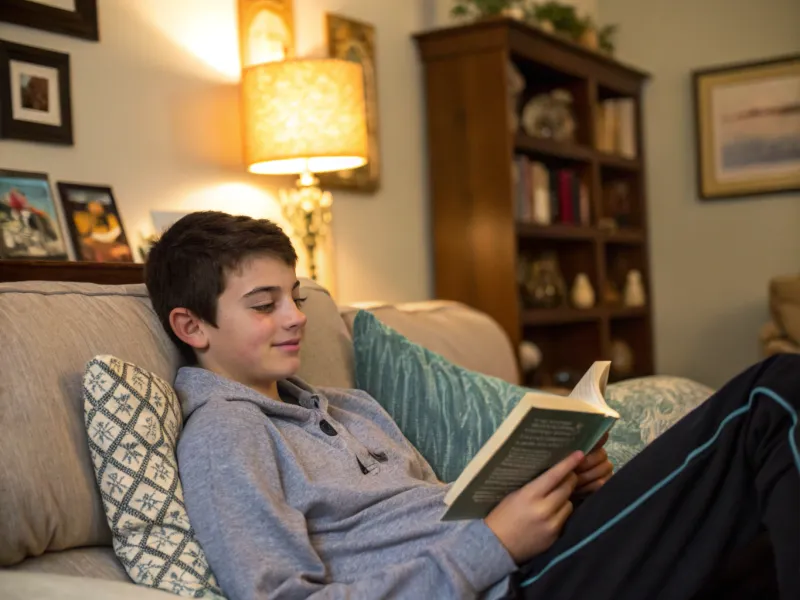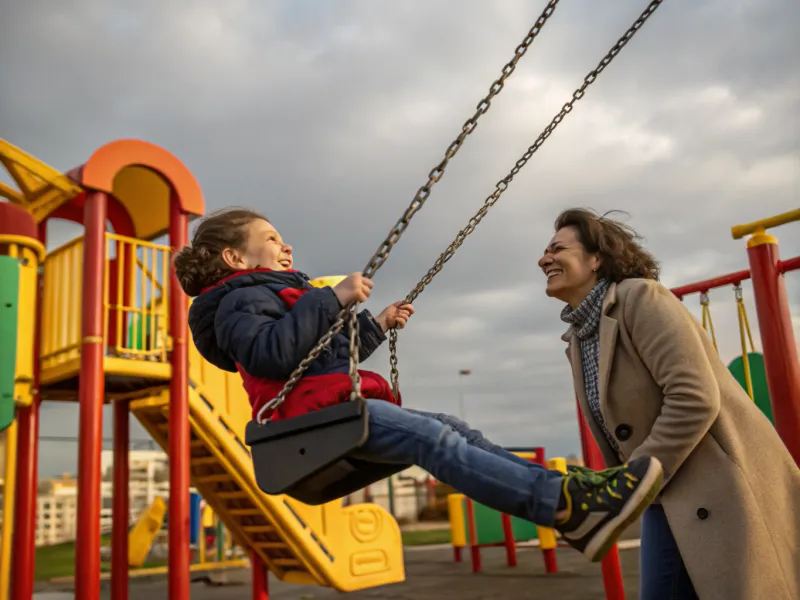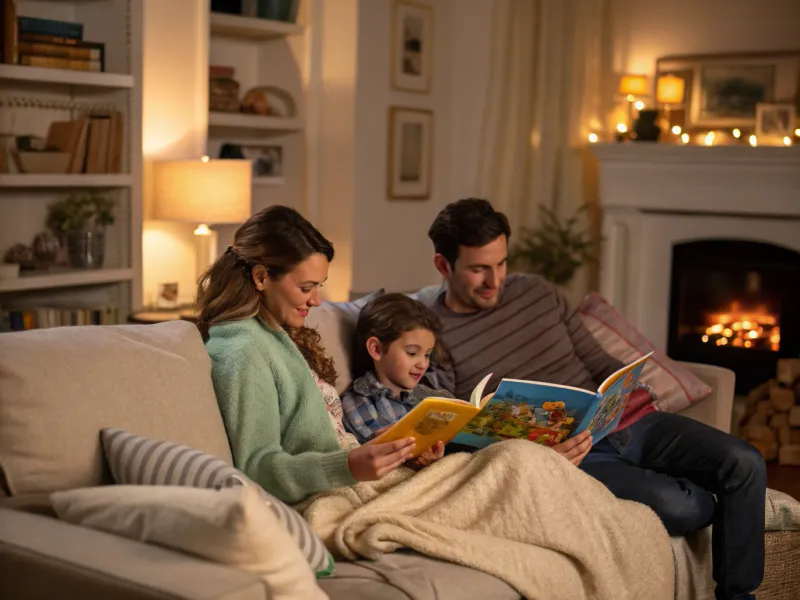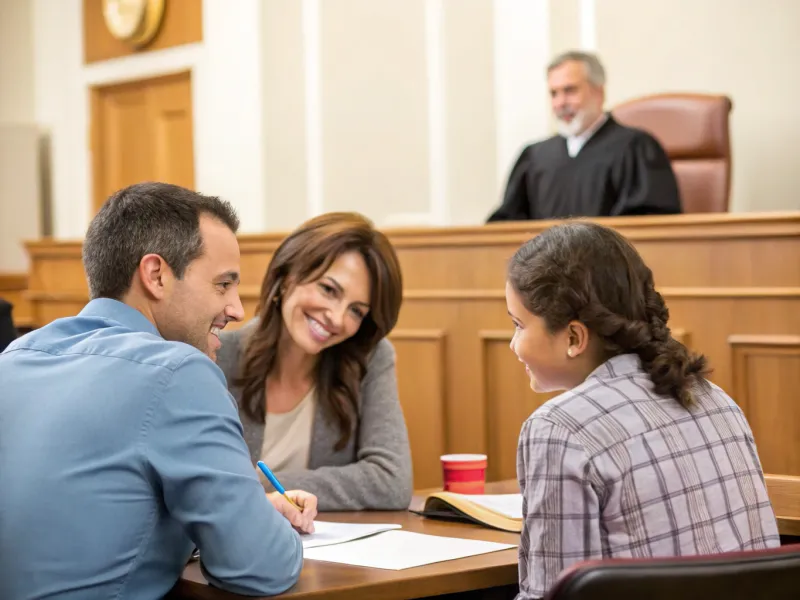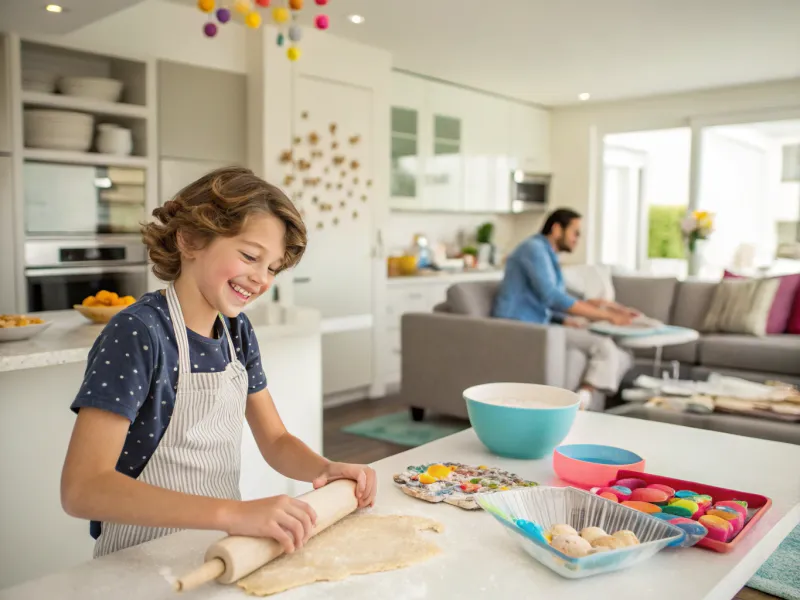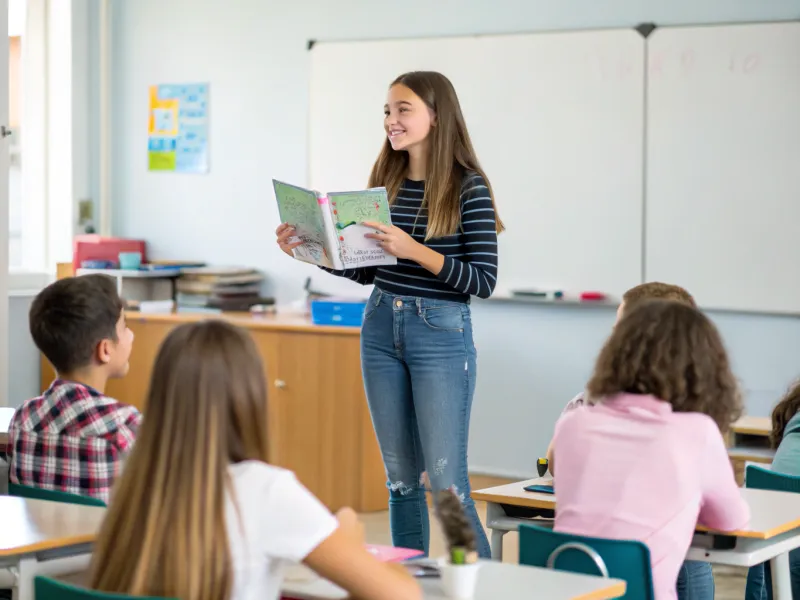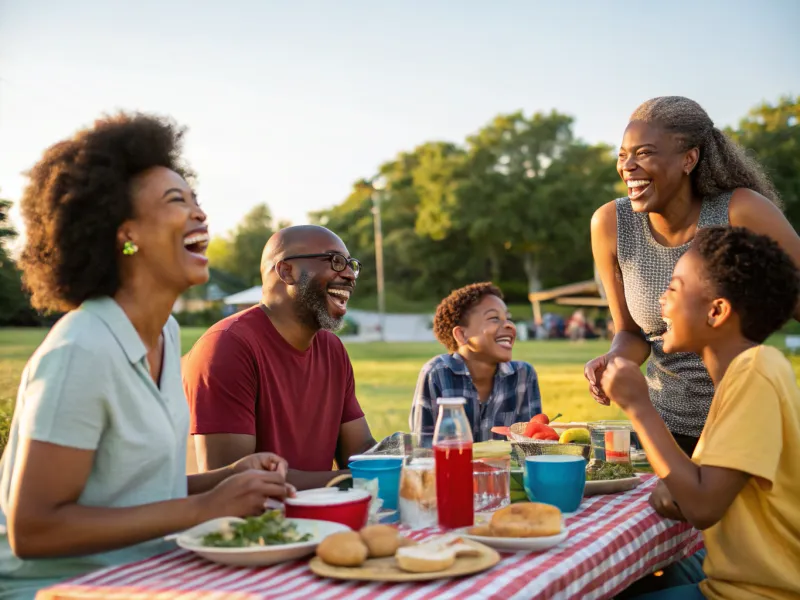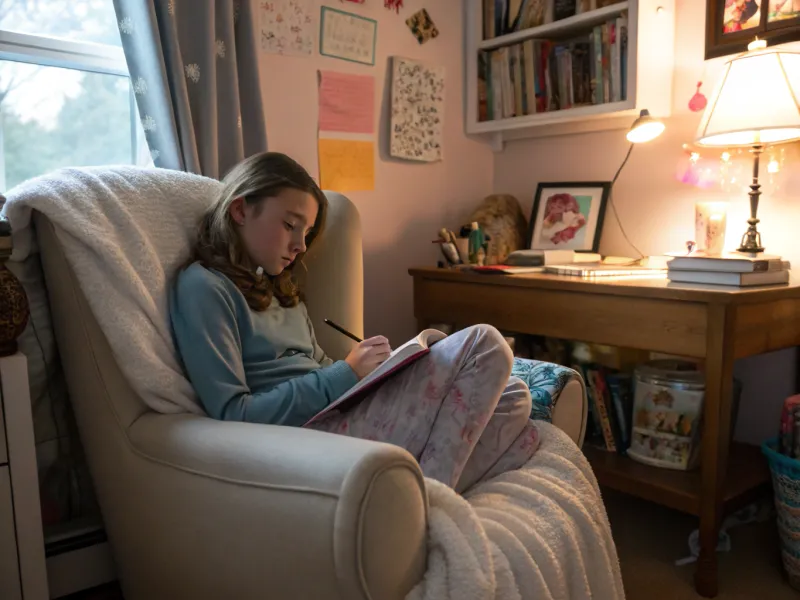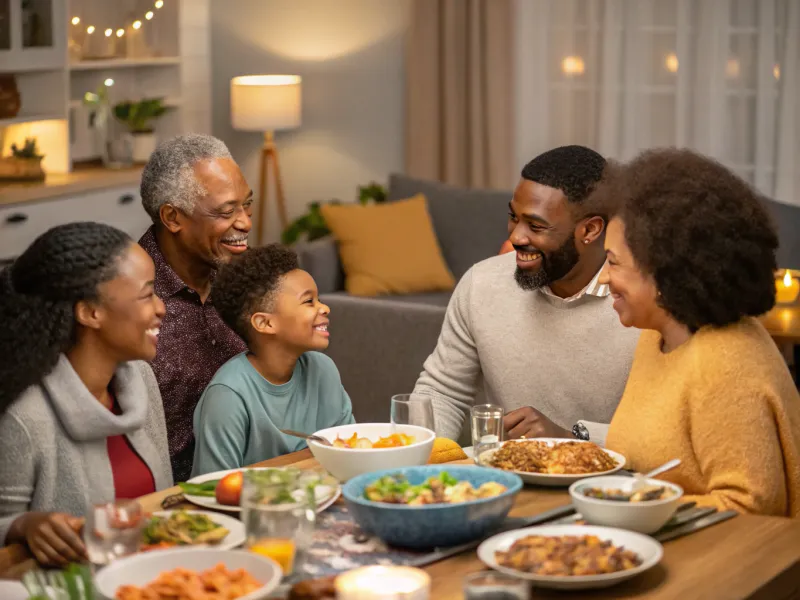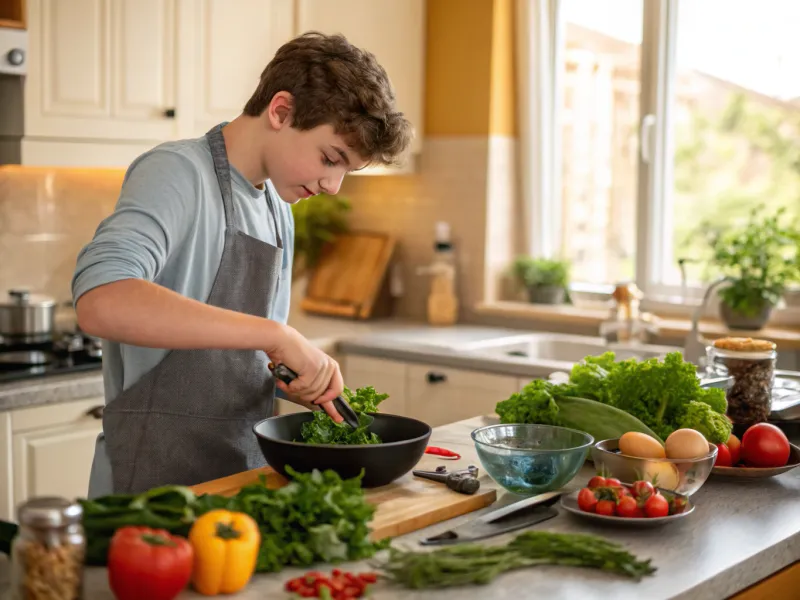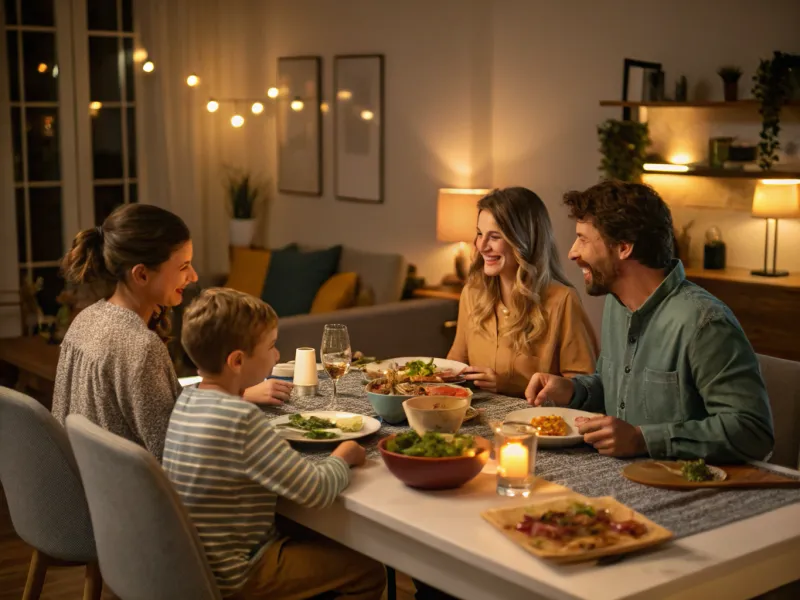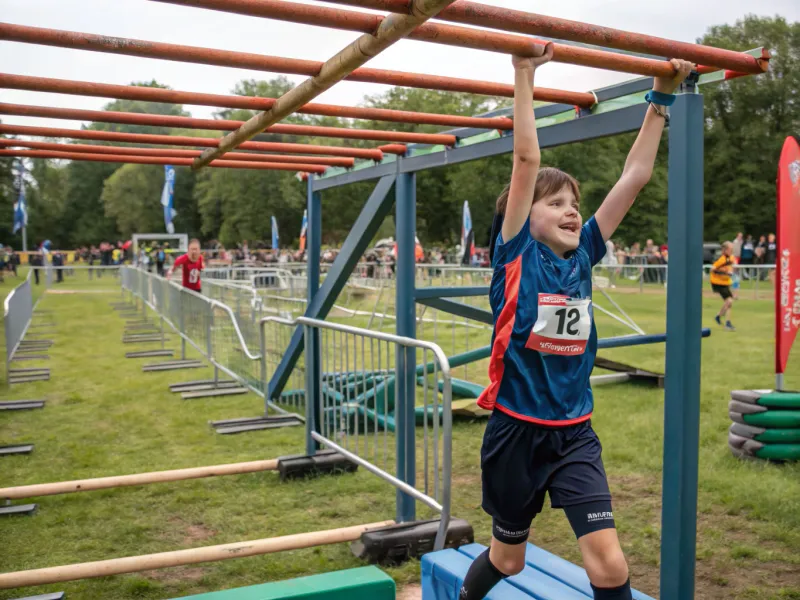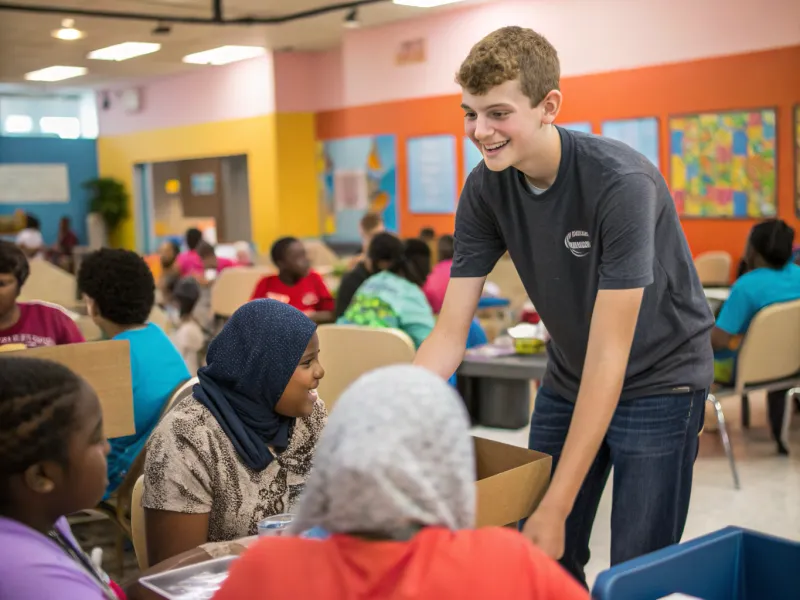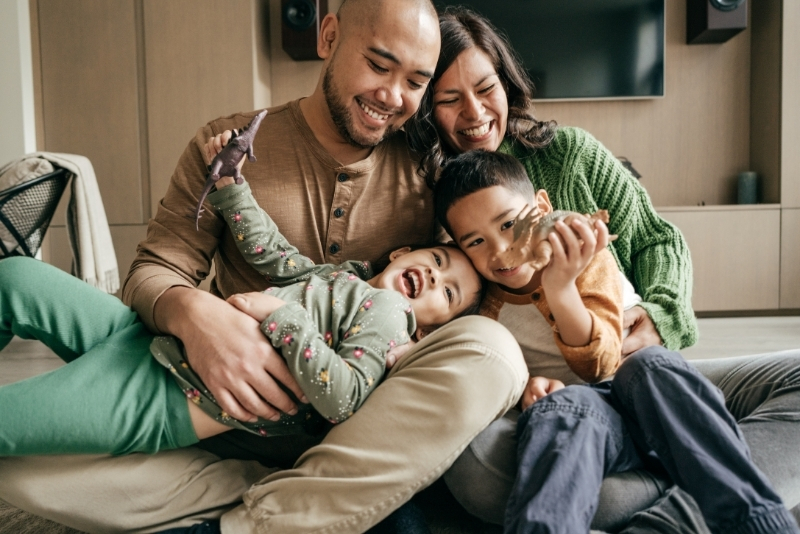When we think about marriage, especially staying in one ‘for the kids,’ it’s easy to believe that keeping the family unit intact at all costs is the best choice.
However, the reality isn’t always so straightforward. Many couples find themselves in a cycle of unhappiness that affects not just themselves but their children as well.
If you’ve been wondering whether sticking it out is truly the best thing, consider this: sometimes, choosing a peaceful separation is a far greater gift to your children than remaining in a turbulent household.
It’s not about choosing divorce lightly but understanding that sometimes, love means making the hardest choices. Here are 30 reasons why a positive divorce can indeed be kinder to kids than a miserable, ongoing marriage.
1. Estabilidade emocional
In a household where tension prevails, children often absorb the stress and emotional turmoil around them. You might notice changes in their behavior, like anxiety or withdrawal. By choosing to create separate, peaceful environments, you give them the chance to grow without constant undercurrents of discord.
Imagine acordar todos os dias numa casa onde a paz reina suprema. Não se trata de perfeição, mas da calma que permite às crianças serem elas próprias. Aprendem a exprimir livremente as suas emoções, sabendo que não vão desencadear uma discussão.
Um divórcio positivo pode restabelecer a estabilidade emocional. As crianças podem concentrar-se em ser crianças e não mediadores de conflitos entre adultos. Esta estabilidade é crucial para o seu desenvolvimento, oferecendo-lhes a segurança de que necessitam para prosperar no seu mundo repleto de escola, amigos e passatempos.
2. Melhoria das capacidades de comunicação
Nos casamentos em que os conflitos são frequentes, a comunicação é muitas vezes afetada. Os filhos podem ser testemunhas de maus hábitos de comunicação, incluindo o evitamento e a agressão. O divórcio positivo ensina às crianças uma forma diferente. Aprendem que não há problema em falar sobre sentimentos e problemas sem medo.
O diálogo aberto torna-se uma norma e não uma raridade. Quando os pais são modelos de comunicação saudável após o divórcio, os filhos vêem em primeira mão o valor de falar e ouvir abertamente. São encorajados a articular os seus pensamentos e sentimentos, sabendo que a sua voz é importante.
As crianças nestes contextos tornam-se frequentemente bons comunicadores, aprendendo a lidar com desacordos de forma construtiva. Esta competência é inestimável, preparando-as para futuras relações e interações na vida, tanto a nível pessoal como profissional.
3. Redução da ansiedade
Viver num ambiente de grande conflito pode gerar ansiedade nas crianças, que podem sentir-se constantemente no limite. A imprevisibilidade de um agregado familiar conflituoso significa que estão sempre à espera da próxima discussão. No entanto, um divórcio positivo pode ajudar a aliviar este stress subjacente.
Imagine proporcionar um espaço onde o seu filho se sinta seguro e protegido. Trata-se de eliminar a tensão constante e substituí-la por estabilidade e rotina. Esta mudança pode reduzir significativamente os seus níveis de ansiedade.
Ao oferecer um ambiente mais calmo, as crianças aprendem a confiar na previsibilidade quotidiana da vida. Podem concentrar-se nos seus estudos, amizades e crescimento pessoal sem o peso adicional da tensão familiar.
4. Ser um modelo de relações saudáveis
As crianças aprendem muito observando as interações dos pais. Se um casamento estiver repleto de conflitos, podem acabar por ver isso como normal. Ao optar por um divórcio positivo, pode dar o exemplo de como são as relações saudáveis, mesmo que já não sejam de natureza romântica.
As suas interações com o seu ex-cônjuge podem preparar o terreno para o que os seus filhos aceitarão nas suas relações futuras. Ao mostrar respeito, cooperação e bondade, está a demonstrar que as relações não têm de ser perfeitas para serem saudáveis.
Esta nova estrutura ajuda as crianças a compreender a importância do respeito e da compreensão mútua, encorajando-as a procurar parcerias positivas nas suas próprias vidas. É uma lição que pode ter um impacto profundo na sua felicidade futura e nas suas escolhas relacionais.
5. Foco no crescimento pessoal
Num casamento tenso, o crescimento pessoal fica muitas vezes para segundo plano, uma vez que a prioridade é lidar com os conflitos diários. No entanto, quando os pais escolhem um caminho mais pacífico para o divórcio, isso pode abrir espaço para que todos, incluindo os filhos, se concentrem no desenvolvimento individual.
Esta mudança permite que as crianças explorem interesses e passatempos que podem ter sido esquecidos no meio da tensão familiar. Podem descobrir novas paixões, estabelecer objectivos pessoais e trabalhar para os alcançar num ambiente de apoio.
Os pais também podem ser modelos de crescimento pessoal, perseguindo os seus interesses e melhorando a si próprios, o que, por sua vez, inspira os filhos. Este ciclo positivo incentiva uma cultura familiar em que o auto-aperfeiçoamento e a aprendizagem são valorizados e celebrados.
6. Laços mais fortes entre pais e filhos
No meio de um conflito conjugal, a relação entre pais e filhos pode por vezes ser afetada. A atenção dada à resolução dos conflitos pode diminuir o tempo dedicado à criação destes laços. Um divórcio positivo significa muitas vezes que os pais podem dedicar mais tempo de qualidade aos seus filhos, reforçando estas relações.
Imagine ter a largura de banda emocional para ouvir verdadeiramente o seu filho, participar em actividades em conjunto e estar presente nas suas vidas. Este foco ajuda as crianças a sentirem-se valorizadas e amadas, reforçando a sua confiança e autoestima.
Para além disso, este reforço dos laços promove um sentimento de segurança. Os filhos sabem que podem contar com os pais, mesmo que estes já não vivam sob o mesmo teto. É uma garantia de que o seu bem-estar é uma prioridade, independentemente do seu estado civil.
7. Exposição à resolução de problemas
Os conflitos conjugais apresentam frequentemente problemas sem soluções à vista, criando um ambiente de estagnação. No entanto, após o divórcio, as famílias dão-se frequentemente conta de que estão a desenvolver e a aperfeiçoar as suas capacidades de resolução de problemas, à medida que navegam por novas dinâmicas e desafios.
As crianças observam como se lida com os problemas de uma forma construtiva, desde a programação da logística até à gestão das emoções. Esta exposição em primeira mão ensina-lhes que os problemas não são insuperáveis e que as soluções podem ser alcançadas através da cooperação e da comunicação.
À medida que crescem, estas competências tornam-se inestimáveis. Aprendem a enfrentar os desafios de frente, abordando e resolvendo criativamente os problemas das suas vidas. Esta mentalidade fomenta a resiliência, uma caraterística inestimável que lhes será útil na idade adulta.
8. Ambiente familiar tranquilo
Uma casa cheia de discussões e tensões constantes pode parecer tudo menos pacífica. As crianças que vivem nestes ambientes anseiam frequentemente pela tranquilidade que lhes permite simplesmente estar. Um divórcio positivo pode promover um lar mais pacífico, livre das tensões diárias da discórdia conjugal.
Creating this calm doesn’t mean silence or lack of activity; it’s about cultivating a space where children feel comfortable and safe. They can come home without the fear of overhearing yet another argument.
Este ambiente tranquilo apoia o bem-estar mental e emocional, promovendo o relaxamento e a concentração. É um santuário onde podem recarregar energias, ajudando-os a encarar a vida quotidiana com uma perspetiva positiva e menos stress.
9. Melhores mecanismos de resposta
As crianças que vivem em casamentos altamente conflituosos podem desenvolver mecanismos pouco saudáveis para lidar com o seu ambiente. Um divórcio positivo dá-lhes a oportunidade de aprender e adotar formas mais saudáveis de gerir as emoções e o stress.
Pode orientá-los para actividades que promovam a saúde emocional, como o desporto, as artes ou as práticas de atenção plena. Estas actividades proporcionam saídas para a expressão e o alívio do stress, ajudando-os a lidar com as suas emoções de forma construtiva.
Esta exposição a estratégias positivas de lidar com a situação é crucial para o seu crescimento. Equipadas com estas ferramentas, elas podem lidar com os altos e baixos da vida com resiliência e graça, em vez de recorrerem ao evitamento ou à agressão.
10. Livre de conflitos de lealdade
Num casamento conflituoso, os filhos podem sentir-se divididos entre os pais, o que leva a conflitos de lealdade. Podem hesitar em mostrar afeto a um dos progenitores por receio de perturbar o outro. O divórcio positivo pode resolver este problema, oferecendo um cenário em que os filhos não têm de escolher um dos lados.
Ao promover um ambiente em que ambos os pais cooperam e apoiam os papéis um do outro, as crianças podem formar relações saudáveis com ambos. Esta liberdade de conflito interno apoia a sua saúde emocional, permitindo-lhes manter ligações fortes e amorosas com cada um dos pais.
11. Redução do risco de imitação de padrões negativos
As crianças imitam frequentemente o comportamento que vêem nos pais. Num casamento infeliz, podem apanhar padrões negativos de comunicação e resolução de conflitos. Ao optar por um divórcio positivo, está a ajudar a quebrar este ciclo, orientando-os para hábitos de relacionamento mais saudáveis.
Quando as crianças observam os pais a cooperar após o divórcio, vêem que os desacordos podem ser resolvidos de forma amigável. Aprendem a importância do respeito, da empatia e da compreensão nas relações.
Esta exposição significa que é menos provável que imitem padrões negativos nas suas próprias interações. Em vez disso, podem levar por diante os exemplos positivos dados pelos pais, procurando e mantendo relações saudáveis à medida que amadurecem.
12. Perspetiva equilibrada das relações
Os filhos de casamentos muito conflituosos podem desenvolver uma visão distorcida das relações. Podem crescer a acreditar que as brigas constantes ou a infelicidade fazem parte da relação com alguém. Um divórcio positivo pode ajudar a dar-lhes uma perspetiva mais equilibrada.
Ao observar as interações amigáveis dos pais após o divórcio, as crianças aprendem que as relações podem ser simultaneamente difíceis e gratificantes. Percebem que nem todas as relações são para durar e que terminar uma não significa fracasso.
Esta compreensão permite-lhes procurar relações saudáveis e gratificantes nas suas próprias vidas, apreciando o valor da harmonia e da comunicação. Aprendem que o amor é multifacetado e que não há problema em dar prioridade à felicidade e ao bem-estar individual.
13. Oportunidade de felicidade parental
Num casamento infeliz, é frequente ambos os cônjuges sacrificarem a sua felicidade pessoal para se manterem juntos. No entanto, este sacrifício pode ser prejudicial para todos os envolvidos, incluindo os filhos.
Quando os pais são mais felizes e mais realizados, trazem energia positiva para as suas interações com os filhos. As crianças notam quando os pais estão contentes e menos stressados, criando um ambiente familiar mais alegre.
Além disso, o facto de ver um progenitor dar prioridade à felicidade e ao bem-estar ensina as crianças a cuidar de si próprias e a importância da saúde mental. Cria um precedente para que valorizem a sua própria felicidade, reduzindo a probabilidade de repetirem padrões de auto-sacrifício.
14. Experiências familiares diversas
Um divórcio positivo pode proporcionar às crianças a exposição a experiências e ambientes diversos. Com dois agregados familiares separados, as crianças podem beneficiar de rotinas, tradições e perspectivas variadas, enriquecendo o seu desenvolvimento.
Imagine fins-de-semana repletos de actividades diferentes, desde explorar a natureza com um dos pais até desfrutar de eventos culturais com o outro. Esta variedade pode ajudar as crianças a tornarem-se mais adaptáveis e de mente aberta.
Estas experiências não só alargam os seus horizontes como também os ensinam a apreciar a diversidade. Aprendem que ser diferente não significa ser mau, fomentando a tolerância e a compreensão - qualidades que têm um valor inestimável no mundo interligado de hoje.
15. Liberdade de uma atmosfera hostil
Um lar repleto de conflitos pode parecer hostil e pouco acolhedor. As crianças que vivem neste tipo de ambiente podem sentir-se constantemente nervosas, sem saberem quando vai rebentar a próxima discussão. Ao optar por um divórcio positivo, está a proporcionar um refúgio contra esta hostilidade.
Agora, imagine uma casa cheia de risos e calor em vez de gritos e tensão. As crianças podem relaxar, brincar e crescer sem a sombra do conflito a pairar sobre elas.
Esta liberdade de uma atmosfera hostil permite que as crianças se desenvolvam num espaço acolhedor. Encoraja a sua curiosidade natural e o seu amor pela vida, promovendo um ambiente de amor onde se sentem verdadeiramente em casa.
Ver também: I stayed in an unhappy marriage for my kids. Here’s why I regret It.
16. Melhor desempenho académico
O stress de uma vida doméstica discordante pode repercutir-se no desempenho académico de uma criança. A criança pode ter dificuldades de concentração e motivação, distraída pela tensão em casa.
Com um ambiente familiar mais calmo, as crianças têm espaço mental para se concentrarem nos estudos. Podem abordar os trabalhos de casa e os projectos com entusiasmo, sem serem sobrecarregadas pelo peso dos conflitos dos pais.
Além disso, os pais podem apoiar melhor as necessidades educativas dos seus filhos. Com menos conflitos para gerir, há mais energia e atenção disponíveis para orientar e encorajar as actividades académicas, ajudando as crianças a atingirem todo o seu potencial na escola e mais além.
17. Oportunidade para novas tradições
As tradições podem ser uma fonte de conforto e alegria para as crianças, proporcionando um sentimento de continuidade e de pertença. Um divórcio positivo oferece a oportunidade de criar tradições novas e significativas que podem enriquecer a vida da sua família.
Talvez seja uma rotina especial para o pequeno-almoço de domingo ou uma nova celebração de férias que se torne uma parte querida da história da sua família. Estas novas tradições podem trazer alegria e estabilidade, oferecendo algo positivo pelo qual ansiar.
Ao criar estas experiências, está a reforçar os laços familiares e a promover um sentido de unidade, apesar das mudanças trazidas pelo divórcio. É uma oportunidade para criar uma narrativa familiar que é exclusivamente sua, cheia de amor e de momentos partilhados.
18. Rede de apoio alargada
Um divórcio positivo pode alargar o círculo de apoio disponível para as crianças. Com os pais a estabelecerem novas ligações sociais, as crianças têm acesso a uma rede mais alargada de pessoas que se preocupam com elas e que podem influenciar positivamente as suas vidas.
Imagine uma criança rodeada de adultos que a apoiam, desde amigos da família a novos parentes introduzidos através de ligações familiares alargadas. Estas relações podem proporcionar camadas adicionais de amor, orientação e mentoria.
Esta rede de apoio alargada ajuda as crianças a sentirem-se mais seguras e amadas. Reforça a ideia de que nunca estão sozinhas e que há muitas pessoas nas suas vidas que se preocupam com o seu bem-estar e crescimento.
19. Dinâmicas parentais mais saudáveis
Muitas vezes, os filhos interiorizam a dinâmica que vêem entre os pais. Num casamento tenso, isto pode significar normalizar a hostilidade ou o distanciamento.
Ao gerir a sua relação com respeito e cooperação, mesmo depois da separação, está a dar um exemplo aos seus filhos. Eles aprendem que, mesmo quando as coisas não correm como planeado, as pessoas podem continuar a tratar-se bem e a trabalhar em conjunto.
Esta nova dinâmica reduz o stress para todos os envolvidos, proporcionando uma estrutura familiar mais estável. Ensina às crianças que as relações podem evoluir e adaptar-se, mantendo o respeito mútuo e a partilha de responsabilidades.
20. Aumento da inteligência emocional
As crianças que assistem a conflitos frequentes podem ter dificuldade em compreender e gerir as emoções de forma construtiva.
Os pais podem ser modelos de consciencialização e regulação emocional, demonstrando como lidar com as emoções com graça e empatia. As crianças aprendem a identificar e a articular os seus próprios sentimentos, promovendo uma compreensão mais profunda de si próprias.
Esta inteligência emocional permite-lhes construir relações mais fortes e empáticas. Tornam-se mais atentos às suas próprias emoções e às dos outros, uma competência que enriquece as interações pessoais e profissionais ao longo da vida.
21. Liberdade para redefinir a família
O divórcio pode pôr em causa o conceito tradicional de família, mas também oferece a liberdade de o redefinir de uma forma que se adapte às suas circunstâncias únicas. Isto pode ser especialmente benéfico para as crianças, ensinando-lhes que a família tem a ver com amor e apoio, e não apenas com estrutura.
Imagine criar uma dinâmica familiar que inclua irmãos adoptivos, padrastos e membros da família alargada, todos contribuindo para um ambiente de apoio. Esta definição mais alargada pode proporcionar uma experiência mais rica e inclusiva para todos os envolvidos.
Ao adotar este novo conceito, as crianças aprendem que a família é flexível e pode adaptar-se às mudanças da vida. Ensina-as a valorizar as relações e as ligações acima das normas convencionais, alargando a sua compreensão do que significa fazer parte de uma família.
22. Oportunidade de reflexão pessoal
O divórcio, embora seja um desafio, oferece oportunidades de reflexão e crescimento pessoal. Isto é verdade tanto para os pais como para os filhos. Incentiva a introspeção, ajudando todos os envolvidos a compreenderem-se melhor a si próprios e a perceberem o que realmente precisam.
Para as crianças, isto pode significar ter espaço para refletir sobre os seus sentimentos relativamente às mudanças na sua família. Isto permite-lhes processar as emoções e desenvolver uma narrativa pessoal que seja honesta e esperançosa.
Esta autorreflexão promove a resiliência e a auto-consciência, preparando-os para os desafios da vida futura. Aprendem a importância de olhar para dentro, compreender os seus sentimentos e tomar decisões ponderadas sobre as suas vidas e relações.
23. Desenvolvimento da independência
In a harmonious post-divorce environment, children can develop a sense of independence. With parents working as separate but supportive units, kids often take on responsibilities, learning to manage aspects of their lives autonomously.
Esta independência é cultivada através de pequenos actos - como gerir os seus horários ou tomar decisões sobre passatempos e actividades. Os pais podem incentivar este crescimento fornecendo orientação e apoio, promovendo a confiança e a autossuficiência.
À medida que amadurecem, esta independência torna-se um trunfo. Incute-lhes um sentido de responsabilidade e de capacidade, preparando-os para a vida adulta. Aprendem a confiar no seu julgamento e nas suas capacidades, preparando-os para um futuro confiante e autossuficiente.
24. Memórias duradouras de tempo de qualidade
Com a redução do conflito conjugal, os pais podem concentrar-se na criação de memórias queridas com os seus filhos. O tempo de qualidade torna-se uma prioridade, permitindo interações e experiências significativas.
Imagine-se a passar um fim de semana a explorar um novo local ou simplesmente a desfrutar de um dia em casa, repleto de risos e ligações. Estes momentos criam um tesouro de memórias que as crianças podem levar consigo para toda a vida.
Este foco no tempo de qualidade fortalece as relações e incute um sentimento de segurança e amor. As crianças recordam a alegria e a atenção, o que contribui para o seu bem-estar emocional e constitui a base de uma infância feliz.
25. Redução da exposição a conflitos
A exposição prolongada a conflitos pode prejudicar o bem-estar emocional e psicológico das crianças. Um divórcio positivo reduz essa exposição, oferecendo uma pausa da tensão constante que pode permear um casamento problemático.
Nesta nova dinâmica, as crianças sentem-se mais descontraídas e seguras, sabendo que a hora das refeições não será marcada por conflitos.
Esta paz de espírito contribui para a sua felicidade e desenvolvimento globais. Aprendem a associar as reuniões familiares a experiências positivas, lançando as bases para interações mais saudáveis nas suas futuras famílias.
26. Oportunidades de aventura
Com a reestruturação da vida familiar após o divórcio, surge a oportunidade de novas aventuras e experiências. As crianças podem explorar novos lugares e actividades, trazendo muitas vezes uma nova perspetiva da vida.
Viajar para novos destinos ou experimentar novas actividades pode ser uma parte emocionante das suas vidas. Estimula a curiosidade e o sentido de exploração, alargando os seus horizontes para além do que lhes é familiar.
Estas aventuras fomentam o gosto pela descoberta e a abertura a novas experiências. Ensinam as crianças a aceitar a mudança e a encontrar alegria no desconhecido, alimentando um espírito aventureiro que pode durar toda a vida.
27. Reforço da resiliência
Enfrentar as mudanças que vêm com o divórcio pode ser um desafio, mas também pode desenvolver a resiliência das crianças. Elas aprendem a adaptar-se a novas circunstâncias e a ultrapassar dificuldades, uma competência que lhes será útil ao longo da vida.
A resiliência é fomentada pela experiência e pela navegação nestas mudanças com o apoio de pais amorosos. Ensina-lhes que, embora a vida possa ser imprevisível, eles têm a força para lidar com o que quer que surja no seu caminho.
Esta resiliência cria confiança e um sentido de capacitação. Assegura às crianças que podem superar os desafios e continuar a prosperar, preparando-as para as diversas experiências e obstáculos que a vida pode apresentar.
28. Visão alargada do mundo
O divórcio positivo traz muitas vezes a exposição a diferentes ambientes e pessoas, alargando a visão do mundo das crianças. Podem conhecer novas pessoas e experimentar culturas diferentes, aumentando a sua compreensão e empatia.
Esta exposição ajuda as crianças a apreciar a diversidade e o valor das diferentes perspectivas. Incentiva-as a ter um espírito aberto e a aceitar as diferenças que encontram no mundo.
29. More Authentic Parenting Moments
When you’re no longer locked in daily conflict, parenting becomes more intentional and present. A peaceful divorce can actually allow you to parent from a place of authenticity, not survival.
Without the emotional weight of a tense marriage, you show up for your kids in real time—with patience, laughter, and genuine interest. You’re not parenting between arguments or stress spirals; you’re parenting with clarity and focus.
These authentic moments, from bedtime chats to Saturday pancakes, become the glue that binds your relationship. Your child sees and feels your emotional availability—and that’s what they’ll remember most.
30. Greater Sense of Safety
One of the most understated benefits of a positive divorce is the return of emotional and physical safety. When children no longer have to tiptoe around arguments or brace themselves for blowups, they begin to truly exhale.
That sense of safety doesn’t just live in locked doors—it lives in tone, body language, and consistency. It’s in knowing that coming home means peace, not unpredictability.
By choosing peace over performance, you gift your kids the one thing every child craves most: a home where they can be themselves without fear. And that safety? It builds the foundation for everything else.

